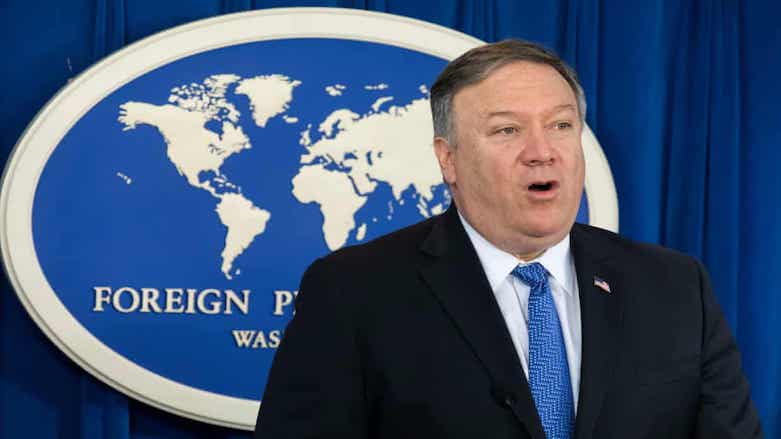US clarifies Iran sanctions: No waiver for Iraq, except for electricity

WASHINGTON DC (Kurdistan 24) – Late on Monday, US officials clarified a confusion that had emerged about whether Iraq will receive a waiver from the new US sanctions that Washington imposed on Iran on Monday, involving its oil, financial, and shipping sectors.
As a State Department official explained to Kurdistan 24, “A waiver was granted” to Iraq that will allow it “to continue to pay for electricity imports from Iran.”
“We are confident this will help Iraq limit electricity shortages in the south,” she added.
The statement explains the apparent discrepancy between what Brian Hook, US Special Representative for Iran, said on Monday, which suggested that Iraq was among those countries that had received a waiver on the Iranian sanctions, and what Secretary of State Mike Pompeo had said earlier that day, which suggested the opposite.
Asked in a telephone press briefing by an Iraqi reporter about the import of electricity from Iran, Hook replied, “Iraq has been granted an exemption,” before adding, “Iraq has been working with us on reducing Iranian influence.”
Hook did not specify that the exemption was for electricity only, creating the impression that he was articulating a position different from Pompeo.
Just a few hours before, Pompeo had listed the eight countries that would receive sanctions waivers: China, India, Greece, Italy, Taiwan, Japan, Turkey and South Korea.
So, according to Pompeo, Iraq was not among the countries receiving a waiver, despite earlier reports that it would.
Analysts speculated that Washington was concerned that Iran would send its own oil to Iraq and ship it out from Iraqi ports. It would, thus, appear as Iraqi oil, when, in fact, it was Iranian oil, and Tehran would receive the revenue from its sale.
The State Department official’s explanation that the waiver was limited to electricity clarifies the confusion.
In addition, she said, “We continue to discuss our Iran-related sanctions with our partners in Iraq,” which could create the possibility for further modifications.
In Hook’s press briefing, he also stated that Baghdad was working with the US “on opening” the Kirkuk oil fields, “which would be another 200,000 barrels of oil” on the international oil market to compensate for the cut-off of Iranian oil.
Until last October, the Kurdistan Regional Government (KRG) exported nearly 300,000 barrels of oil per day from Kirkuk through the Ceyhan pipeline to Turkey.
However, after Iraq seized Kirkuk last October from Kurdish control, Baghdad ended oil exports to Turkey through the pipeline and began trucking a fraction of that oil—30,000 barrels per day—to Iran.
The seemingly conflicting US statements caused some confusion in the region. Safeen Dizayee, Spokesperson for the Kurdistan Regional Government (KRG), had earlier—before Pompeo and Hook spoke on the issue—told Kurdistan 24 that the KRG would implement “whatever the federal government of Iraq decides.”
Following the statements from Pompeo and Hook, Dizayee told Kurdistan 24 that Baghdad “had not informed them” whether Hook’s statement was accurate or not. “We are waiting to be contacted on the matter by Baghdad tonight or tomorrow,” Dizayee said.
He added that the US Consul General in Erbil, Steven Fagin, would be meeting with KRG Prime Minister Nechirvan Barzani on Tuesday to clarify the issue.
Presumably, among the points that Fagin will explain is the very narrow exemption that Iraq will receive on Iran sanctions, limited to the import of electricity.
(Kosar Nawzad contributed to this report from Erbil)
